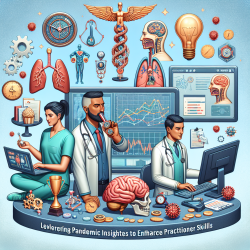Introduction
Congenital Adrenal Hyperplasia (CAH) due to 21-Hydroxylase Deficiency presents a complex challenge in pediatric endocrinology. Despite advances in medical treatment, optimal care remains elusive. A recent evidence-based model highlights the significance of a multidisciplinary approach in managing CAH, offering promising outcomes for patients and their families.
The Multidisciplinary Model
The 2002 consensus statement by the Lawson Wilkins Pediatric Endocrine Society and the European Society of Pediatric Endocrinology emphasized the importance of a multidisciplinary team in CAH management. This team includes specialists in pediatric endocrinology, psychosocial services, pediatric surgery/urology, and genetics. The integration of these disciplines ensures comprehensive care addressing medical, surgical, educational, and mental health needs.
Key Components of the Model
- Medical Management: The model outlines protocols for hormone level management, emphasizing regular monitoring and adjustments based on clinical parameters such as growth rate and bone age.
- Surgical Interventions: Surgical options like feminizing genitoplasty are discussed with families, highlighting the importance of informed decision-making and timing.
- Mental Health Support: Routine psychological assessment and support are integral, recognizing the potential mental health challenges faced by CAH patients.
Benefits of a Multidisciplinary Approach
Implementing this model has shown significant improvements in both medical and mental health outcomes. Data indicate enhanced adherence to recommended laboratory tests, increased engagement with mental health services, and greater participation in peer support groups. These outcomes underscore the model's effectiveness in providing holistic care.
Encouraging Further Research
While the evidence supports the benefits of a multidisciplinary approach, further research is needed to explore its long-term sustainability and impact on quality of life. Practitioners are encouraged to engage in ongoing research and adapt protocols to meet the evolving needs of CAH patients.
To read the original research paper, please follow this link: An Evidence-Based Model of Multidisciplinary Care for Patients and Families Affected by Classical Congenital Adrenal Hyperplasia due to 21-Hydroxylase Deficiency.










